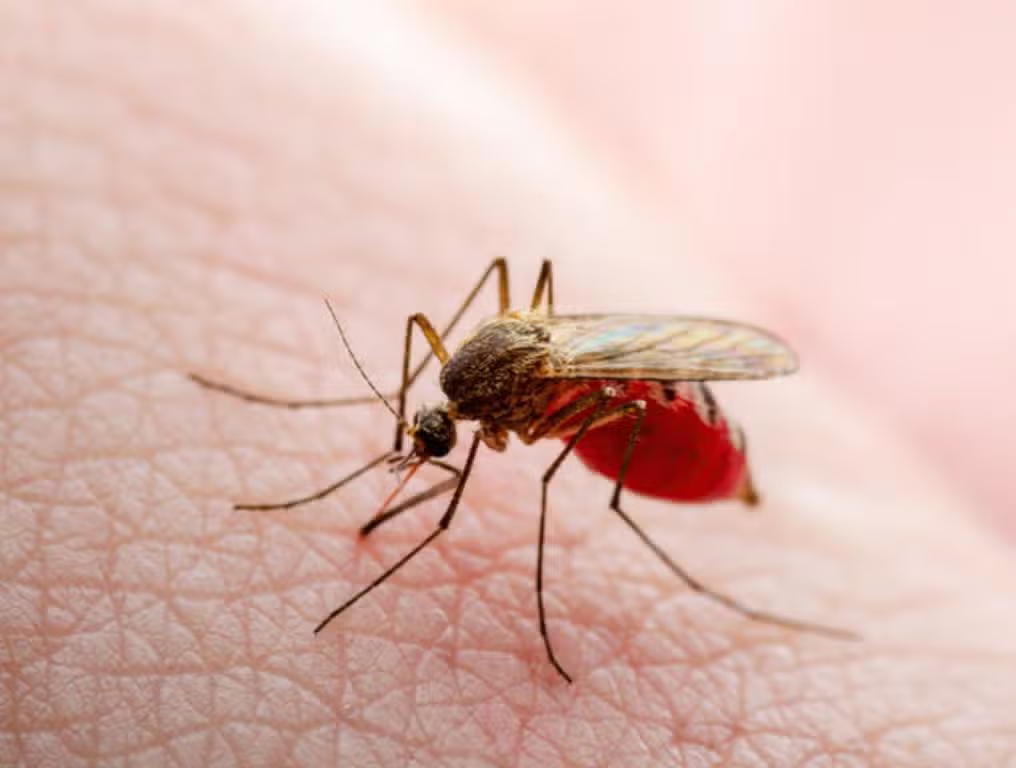Local Malaria Cases Detected In US After Decades: What To Know
The Centers for Disease Control and Prevention (CDC) has issued a warning about a few cases of malaria. Cases have been spreading in Florida and Texas. It’s the first time…

The Centers for Disease Control and Prevention (CDC) has issued a warning about a few cases of malaria. Cases have been spreading in Florida and Texas. It's the first time in 20 years that locally acquired cases have been found in the US.
There have been five reported cases of malaria contracted by people within the United States. Four cases have been reported in Florida and one in Texas. All of them have occurred within the past two months. Having these infections is cause for concern among health officials. This type of infection has not been observed since 2003.
Background of malaria
The CDC alert mentions that malaria infections in the US aren't unheard of. Before the COVID-19 pandemic, the country used to have around 2,000 malaria cases each year. According to the CDC, most malaria cases in the U.S. are usually found in people who traveled to places where malaria is common. Having these five infections pop up in Florida and Texas, with no travel involved, means mosquitoes got infected and passed the parasite to them.
There are effective treatments and ways to deal with malaria in the U.S., even though the treatment itself might not be a walk in the park. Back in the day, malaria was all too common in the U.S. But thanks to the National Malaria Eradication Program in the '40s and '50s, it was eliminated and declared non-endemic in the country.
Symptoms of malaria
When it comes to malaria, the CDC considers it a serious medical emergency that can be deadly. This is especially true for children under five and pregnant women. The symptoms can vary from mild to life-threatening. They can resemble flu-like symptoms and may include an enlarged spleen, enlarged liver, or mild jaundice.
A distinctive characteristic of malaria is what's known as a malaria attack, during which an infected person experiences a specific period of illness lasting about six to ten hours. These attacks have three stages: a cold stage characterized by chills and shivering, a hot phase with fever, headaches, vomiting, and potential seizures in children, and finally, a sweating stage where the temperature returns to normal. Apparently, patients go through these attacks in cycles throughout their infection.
Types of Malaria
There are four types of malaria, and the cases detected in the United States have been caused by the P. vivax parasite. Out of the 200+ mosquito species in the continental U.S. and its territories, there are two specific species capable of carrying and spreading P. vivax. Now, here's the thing you should know. It takes 10 to 15 days for the P. vivax parasite to develop inside a mosquito and become transmissible. That means the spread of malaria may not be immediately noticeable, especially if people ignore the symptoms.
Treating malaria
In treating infections caused by P. vivax, the anti-malaria drug chloroquine does the trick. But here's the catch: cases associated with this parasite may require additional treatment. What's interesting about P. vivax is that it's one of two forms of malaria that can lie dormant in the liver. This parasite can cause recurring illness for months or even years. According to the CDC, most malaria cases will need medical intervention to be resolved. And specifically for P. vivax cases, primaquine is used to target the dormant parasite hiding in the liver.
5 Surprising Symptoms People Ignore Most When They’re Sick
People ignore symptoms when they're sick for several reasons. Some are simply in denial or scared of what a diagnosis could mean for their lives. They'd rather pretend nothing is wrong than face the truth. And then there are those who just don't realize how serious their symptoms are. They brush them off as minor annoyances that will go away on their own.
Our busy lives also come into play. We're so caught up in work and other responsibilities that we put our health on the back burner. It's like we convince ourselves that we don't have time to deal with it, hoping the symptoms will magically disappear. Plus, the cost of healthcare can be a huge deterrent. People worry about the financial burden of doctor visits, tests, and treatments, so they choose to tough it out instead.
Talker, a research company, along with OnePoll on behalf of Mucinex, conducted a poll of 2,000 people that revealed the top symptoms people ignore when they are sick. According to their study, around 48 percent of those surveyed brush off symptoms like cold sweats or chills. About 46 percent of people ignore a fever, while the study also revealed that 21 percent of people don't even acknowledge the presence of green mucus.
Also found in this study is that even though people experience these obvious signs like body aches (46 percent) or a serious cough (19 percent), it takes them two whole days before they finally admit that something might be wrong with them. Interestingly, almost three in five people use the excuse of "it's just allergies" to explain away their symptoms.
It turns out, one-third would write off a sore or scratchy throat as just allergies, while only 16 percent would acknowledge that they might be sick. Another 14 percent would even go as far as blaming the weather for their discomfort.
"We want to remind people that taking care of their health should always be a top priority, and that includes taking the time to rest and recover when necessary,” Albert So, marketing director of Mucinex, said. "It's important to understand your body and your symptoms so you can choose the right medication to address your needs."
Take a look at the complete study here.
These are 5 surprising symptoms people ignore when they're sick.
Cold sweats or Chills
Chills and cold sweats can be uncomfortable. Chills feel like a sudden wave of cold running through your body, making you shiver. Cold sweats, on the other hand, are when you start sweating but your skin feels cold and damp instead of warm. Some people may not immediately associate these symptoms with something serious. They might attribute them to temporary factors such as being in a cold environment or wearing too many layers of clothing. People may underestimate the significance of cold sweats or chills, especially if they are not accompanied by other noticeable symptoms. They may assume it's just a passing discomfort that doesn't require medical attention.

Tibanna79/ Getty Images
Fever
When you have a fever, your body temperature rises above its normal range, which is typically around 98.6°F (37°C). Fevers can vary in severity and may range from mild to high-grade, depending on the underlying cause. Sometimes, people ignore a fever for a few reasons. They might think it's just a common cold or flu and believe it'll go away on its own. It's important to remember that a fever can be a sign that the body is fighting an infection or an underlying health condition.

Paolo Cordoni/ Getty Images
Body Aches
When you experience body aches, you may feel soreness, tenderness, or a general sense of discomfort in your muscles, joints, or other areas. People may dismiss body aches because they may think it's just a normal part of everyday life and not something to be concerned about. Some may believe their body aches are due to factors like physical exertion, tiredness, or overexertion during exercise. Also, if someone has experienced them before and they have resolved on their own.

AntonioGuillem/ Getty Images
Green Mucus
Some people may believe that the color of mucus is not a reliable indicator of an illness. While green mucus can be associated with certain infections or respiratory conditions, it's not always a definite sign of a serious problem. People may assume that it's normal and will resolve on its own.

Drazen Zigic/ Getty Images
Serious Cough
This kind of cough can disrupt your daily life, mess with your sleep, and leave you feeling exhausted. People ignore serious coughs for a few reasons. Some think it'll go away on its own or believe it's just a minor issue like a cold or allergies. Others worry about the cost or hassle of going to the doctor. There's also the fear of getting a serious diagnosis that can make people hesitant to seek help.

klebercordeiro/ Getty Images







